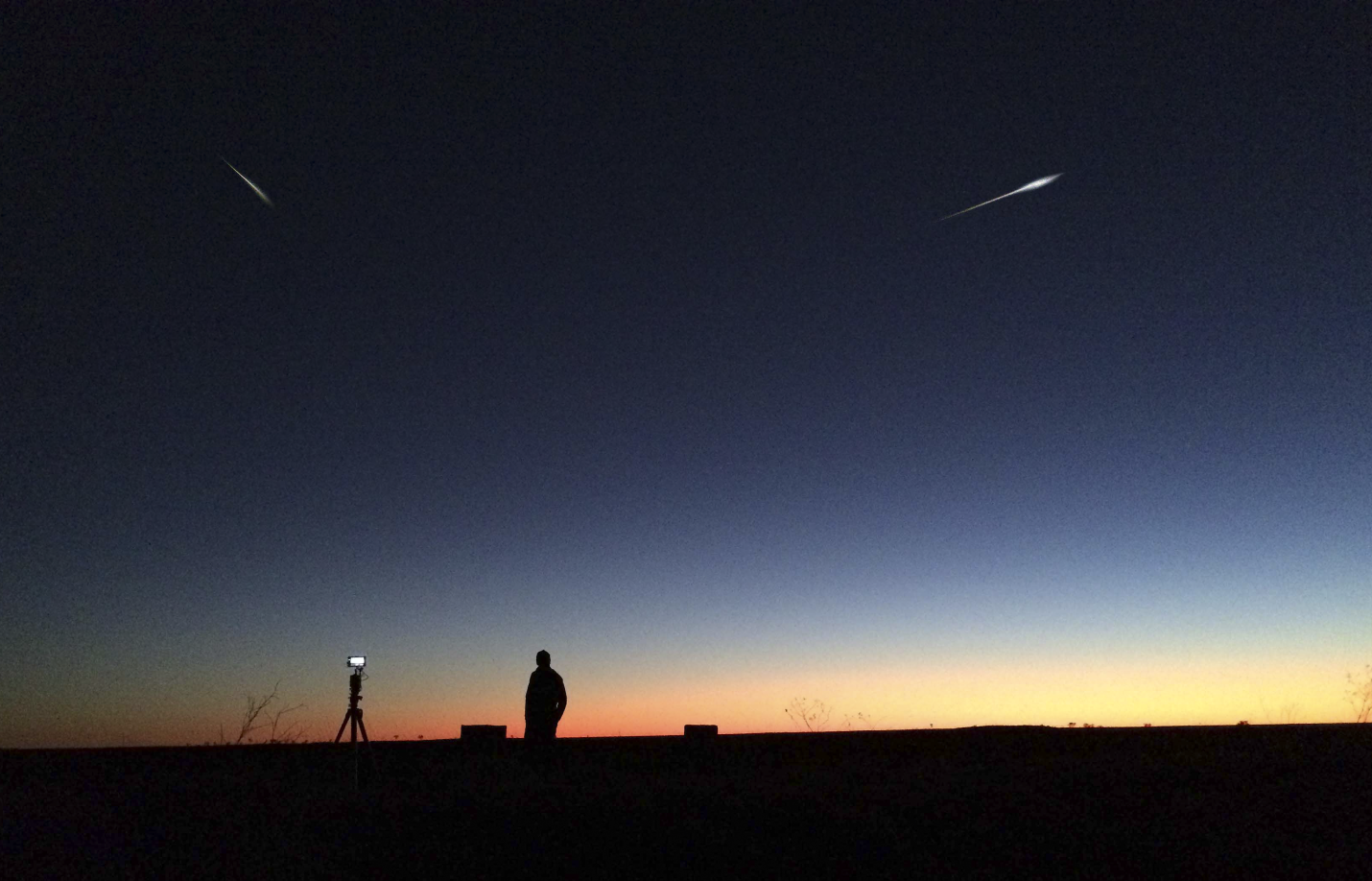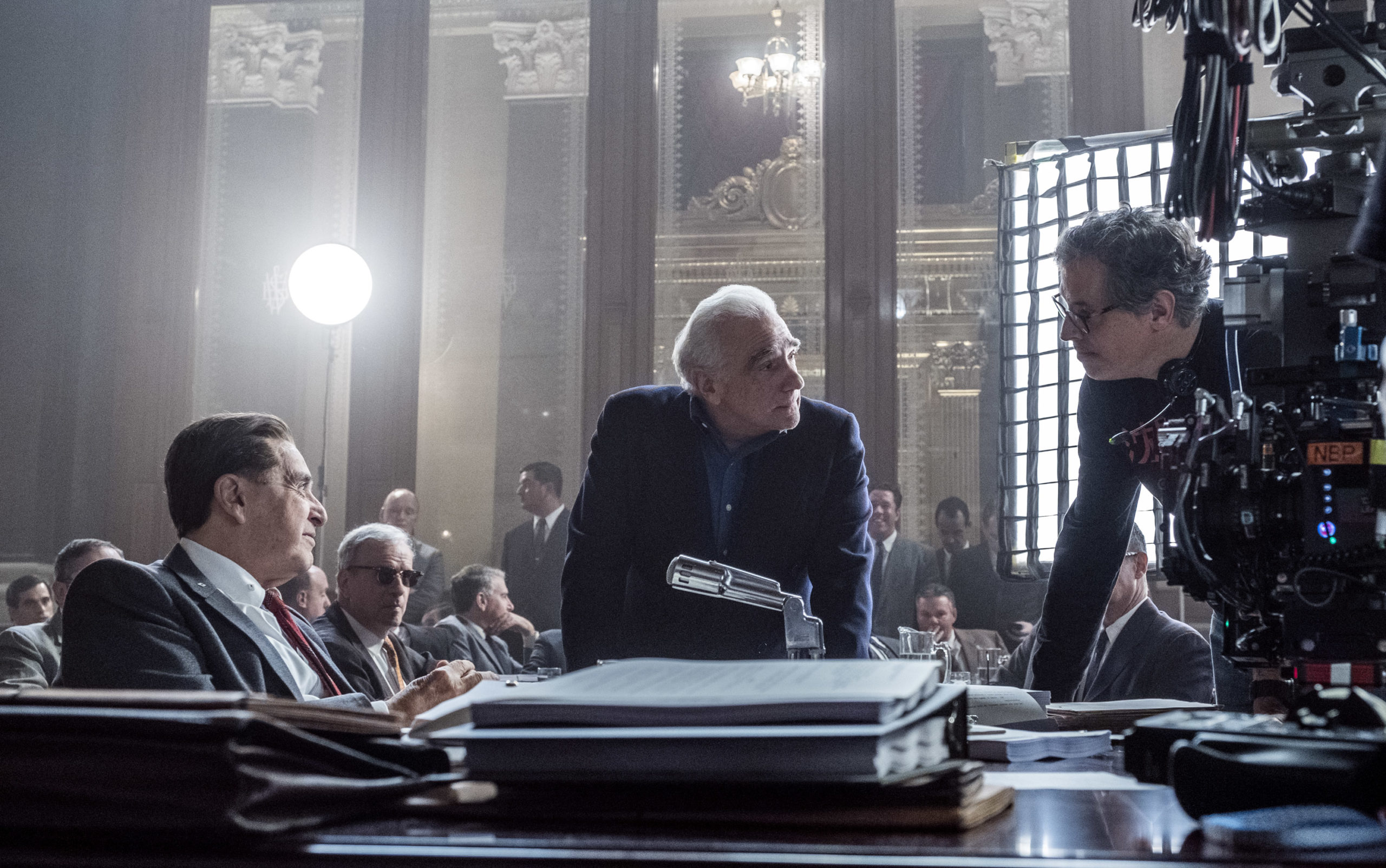For nearly six decades, Werner Herzog has crafted iconoclastic works in both fiction and non-fiction. With his Bavarian drawl and sardonic air, his films often focus on obsessive characters, the bleak indifference of nature’s cruelty and the strange beauty of the odd creatures that inhabit our world. Herzog’s solo projects have included landmark titles such as Cave of Forgotten Dreams (2010), a wonderful journey into humanity’s artistic past, and Grizzly Man (2005), which chills more than any horror film by illustrating how self-delusion is often the most self-destructive of human attributes.
With 2016’s Into the Inferno, Herzog solidified his collaboration with Clive Oppenheimer, Professor of Volcanology in the Department of Geography of the University of Cambridge; the scientist had already appeared in his Oscar-nominated doc Encounters at the End of the World (2007). The globe-trotting Inferno explored how explosive fissures in the earth’s crust captivate our collective imaginations while shaping the planet. Four years later, the two again joined forces to consider a topic with deep impact: meteors. Fireball: Visitors from Darker Worlds examines our fascination with extraterrestrial visitors that arrive in the form of rocks raining from the sky. It explores how scientists and other obsessives use these connections to life outside our sphere to draw both empirical and philosophical conclusions.
Like Inferno, Fireball benefits from the different perspectives of the co-directors. While audiences are familiar with Herzog’s open-ended philosophy and eccentricity, Oppenheimer’s scientific background provides a layer of stability. The latter’s eagerness and keen eye for detail makes the complex ideas accessible. With locations that span the frigid plains of Antarctica to the forests of the Yucatán, Fireball provides vicarious adventures to the physical scars that meteors have left on Earth and examines the effect of their arrival on our collective imaginations. As Oppenheimer globetrots to interview amateurs and experts alike, Herzog’s wry observations underscore both the surrealism and the spectacle that these meteors represent. Their collaboration creates a film that’s both insightful and entertaining, mixing rigorous and accurate scientific reporting with tales of “godforsaken beach towns,” mystical superstitions and a fascination with blockbuster disaster films. POV spoke to Herzog and Oppenheimer prior to the film’s virtual premiere at the Toronto International Film Festival. The following has been edited for clarity and concision.
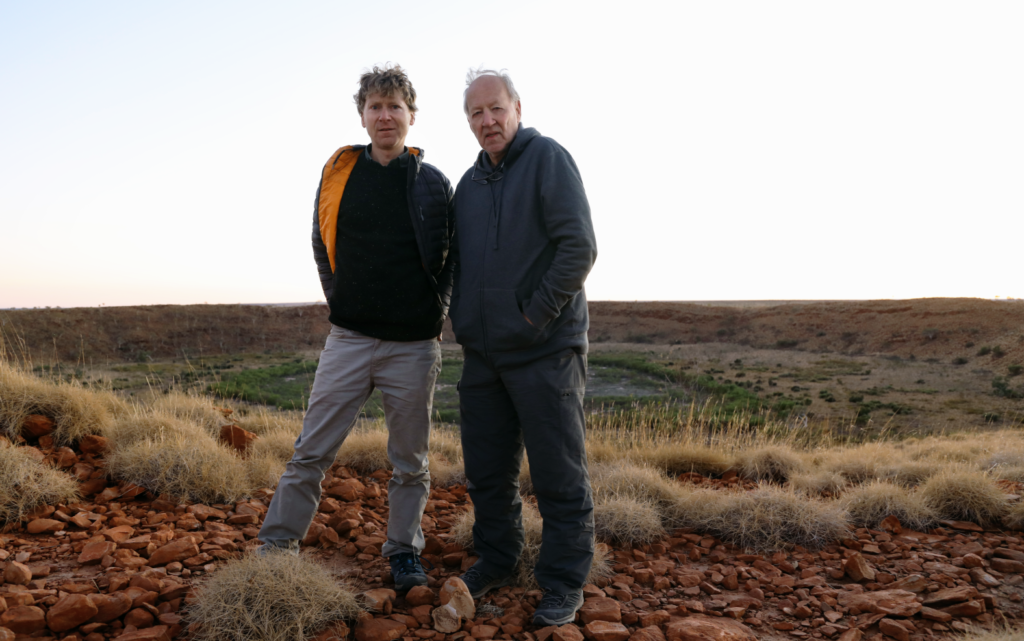
POV: Jason Gorber
WH: Werner Herzog
CO: Clive Oppenheimer
POV: My editor asked me to remind you that you were kind enough to support Toronto during the 2003 SARS epidemic.
WH: Toronto has been good to my films and I owe a lot to the audiences there. The reception of my films was wonderful and, in a way, I miss that. While this year the festival is [mostly] virtual, I do wish I could be there shoulder to shoulder with the local audience.
POV: How are you dealing with life under COVID?
WH: Microbes have always been after us, and they’ve been quite successful. But, of course, things have changed for me. I was supposed to have theatrical releases for two other films. I was also supposed to have a workshop with young filmmakers from across the world in Amazonia, which is particularly hard hit by COVID. Of course, all these cancellations are dictated by the pandemic. In the face of plague, I’m disciplined; the only real attack mode is the most defensive one. You need to cover yourself, to stay distant and be disciplined, as that’s what starves the sucker. Otherwise, I’m spending my time writing prose texts and poetry. During lockdown, there’s never a boring moment!
POV: How did you decide to focus on meteors and their role in our planet’s history?
CO: About a year after we completed Into the Inferno, I visited the Korean Polar Institute and they gave me a tour of the labs. I saw these fabulous meteorites being venerated, with each one in a nitrogenfilled glass cubicle in an ultra clean lab behind a glass window. I almost instantly realized the cinematic potential. It put me in mind of the black stone in the Kaaba in the Grand Mosque in Mecca, one of the holiest relics in Islam, which involves a different veneration of these stones. Further, this geoscientific topic weaves together the nature and culture of the phenomena of shooting stars, comets, deep impact craters and so on.
POV: Werner, can you talk about the collaboration? Was your role this time always behind the camera? Were you on every adventure that Clive went on?
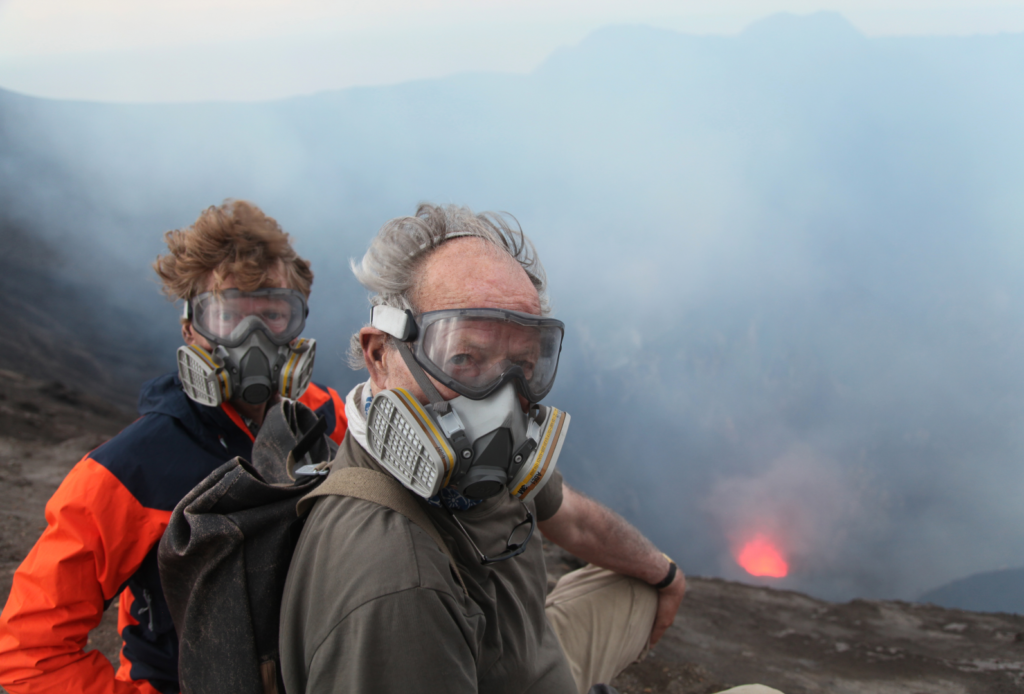
WH: Actually, I’m on camera for a few seconds. Very early in the film, in Australia, you see me briefly from behind. This particular voyage started with Clive Oppenheimer’s quest for looking into this phenomenon. I find it easy to collaborate with Clive because he has different qualities as a filmmaker than I have. I’m more the wild storyteller, but both of us want to elevate movies, or documentaries, with scientific content while going somewhere else. We’re both sick and tired of these didactic nature movies that just shake the dust out of your ears. I can’t see it anymore when I switch on the TV.
We are wilder, we are more imaginative, and there’s more poetry in what we do. We bring a sense of awe. The other films feel like textbooks in school. I do not want to learn much from a movie! Instead, let a movie be a movie. Clive and I have the same sort of thinking about this. Subject wise, we would bring our individual capabilities that would enrich the movie. In general, it’s very easy with Clive. He’s a wonderful presenter, he has wonderful conversations and is never patronizing. He is always curious, always genuine, and there’s always something very authentic about his display of awe and curiosity.
POV: So, to reconfirm, were you on every trip, even if you are not seen on camera?
WH: No. For example, I couldn’t go to Antarctica as I was editing already. But I knew that Clive would bring back fantastic footage.
POV: I’m fascinated by the well-developed shtick of a Herzoggian narration. We’ve come to expect a certain character with comments that are sardonic, sarcastic, and slightly self-effacing. How do you construct the voiceover?
WH: It’s written as we are editing. Clive was there in the editing bay and I would have some ideas that I would scribble down spontaneously. I would say something, and he would reply, “No, this is not really correct, let’s give it a different shadow.” Of course, the voice itself is not separate from the content. The commentary is what I would normally write as a narrative thread through my films. It often exposes the humour of a situation. I have a specific Bavarian brand of humor. I never saw my voice as some sort of a brand, but I know it functions well in the films and that it gives good guidance. If audiences disliked my voice, I would never speak a commentary again!
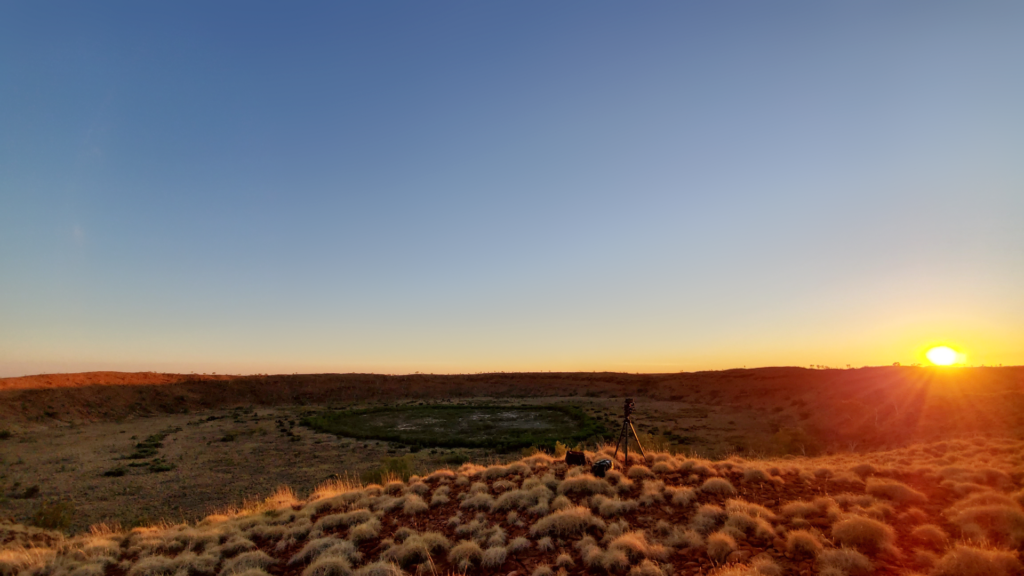
POV: In terms of providing a sense of wonder through iconic narration, the projects of David Attenborough come to mind. Does Attenborough’s legacy influence your nature documentaries?
WH: With Attenborough, it is all pre-set. He comments on things that are not his adventures in the jungle and chimpanzees ripping each other apart. Some of it is acting, but for Clive it is not performative.
POV: I would humbly say some of your voiceover is acting and performative.
WH: Well, yes. My voiceover is a performative texting. For example, at the end of the volcano film, I’m talking about content that makes it so wild. The lava wants to burst forth from the interior of our planet everywhere and it’s monumentally indifferent to whatever it hits. I talk of “scurrying roaches, retarded reptiles, or vapid humans alike.” Bam! It’s content, and of course the voice gives it a stylization. Clive, you have to speak a little bit about your presence on screen because it’s a huge part in it and I’m proud of it.
CO: I’d say David Attenborough is pure class and he has been since the 1950s. But it’s an incredibly different genre. My starting point for wanting to talk about what I did on camera was with the cheesy volcano TV shows. Nearly every one of them announced, “It’s not a matter of if it’s going to erupt, but when!” Then a quick cut to a commercial break. This was not how I wanted to talk about things. It’s formulaic, and it’s put together by people who’ve done the bare minimum of research. These shows miss the nuances and the complexities, and they neglect to touch on the human condition.
I’m a geologist by training, but I’m in a geography department where I rub shoulders with colleagues in the humanities and the social sciences. That brings an enriching domain to look at geoscience phenomena. I’m interested in what literature says about how meteorites are depicted, such as what H.G. Wells thought about them.
WH: As we were speaking earlier of David Attenborough, I want to send a greeting to him in the in the virtual, digital cloud. My wife Lena has a godchild, a little girl who is three years old. She lives in rural Ohio, and her mother takes her out to the pond and to the forest. This girl knows every tree, every frog. She has a tiny microscope now and goes to the tiny pond and discovers something and looks into little microbial life. The little girl doesn’t have a cellphone; she never watches TV. As a three-year-old, she is already sensational. Her parents only show her the nature series with David Attenborough. Just two days ago, we got a call that she speaks in her sleep and calls out “Attenborough.” My heart is really warming up, and that’s thanks to David Attenborough. He’s that good. I love that a three-year-old girl with a microscope is discovering the secrets of the pond.
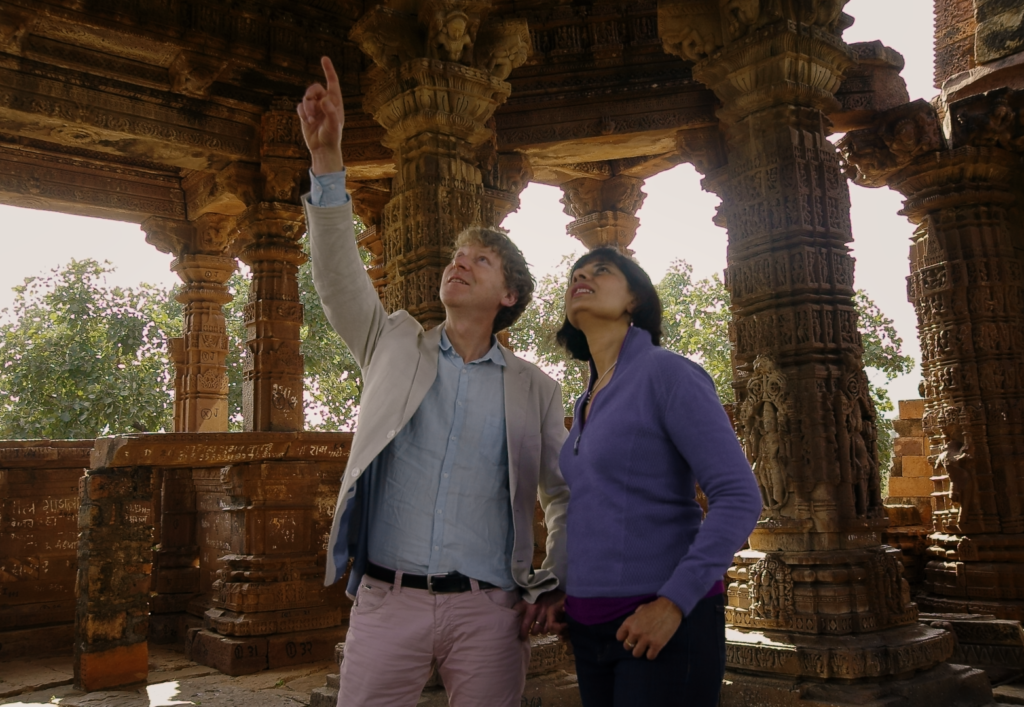
POV: You two evoke a science/philosophy dynamic. On one hand, you get into the poetry of these moments, but you also find beauty in the surrealism of obnoxious American disaster movies or bad nature TV programs. There’s power in this collision of high and low that’s evocative of your topic.
WH: Let’s face it, I’m just a good storyteller. It doesn’t matter where I come from. That sense of awe and excitement that always needs to come across. There is no collision, I just don’t see it. I see a strange, absurd beauty in these science fiction films that Hollywood produced.
POV: How do you feel that your non-fiction cinema reflects upon your fiction cinema and vice versa?
WH: I don’t make much of a distinction. Much of what I do in so-called documentary movies are feature films in disguise. You cannot do that when you are doing a film with Mikhail Gorbachev, for example. With Meeting Gorbachev you have to stay disciplined and stick to a discourse. You cannot become wildly inventive. But with Fireball we can be as wild as we can get and come in unfettered. Clive is made of the same wood.
POV: One difference is that your worldview is more overt in your documentaries through the narration.
WH: With my films, it’s all one worldview. I have made so many different movies—one is about conquistadores in the Spanish colonial times of Peru, another about an opera lover who moves a ship over a mountain. I’ve made films about Paleolithic caves. And yet, there’s a common worldview and it’s recognizable. I feel that people understand that instantly.
POV: There’s an excellent Canadian film, Last Night, which asks the question about how you would spend your last moments on a doomed earth. How would you spend your final moments?
CO: I’m going to play “Number 13 Baby” by the Pixies.
WH: Martin Luther said, “Even if I knew that tomorrow the world would go to pieces, I would still plant my apple tree.”
POV: In the face of annihilation, you still crave a future?
WH: No. Clearly, the world is going under. I would start shooting a film, which of course would remain unfinished.
POV: You visit what you dub a “godforsaken beach town” in Mexico, which is ground zero for one of the more shattering impacts in global history. Can you talk about your experience of being there where everything feels so dreary and meaningless?
CO: The crater is 100–200 km across and there’s nothing to see at the surface. This was an immense geological cataclysm with 95% of species going to the wall. It reset the clock of evolution, and gave rise to mammals and, eventually, we humans showed up. When you turn up at the epicentre of this impact in Chicxulub, it’s rather sad. I think it’s in a hurricane belt and a lot of stuff hasn’t been rebuilt. There’s a little “I ♥ Chicxulub” sign, so they’re making something of this geo-heritage. I was fascinated by the Mayan cities like Chichen Itza where we filmed. One thing that you can see as an imprint of the crater are these sink holes in the limestone across the Yucatán Peninsula. What you’re seeing is actually an echo from the deep structure of that impact, this kilometer-wide bolide coming in at 20 km/s. At that speed, it doesn’t see the atmosphere, it doesn’t see the top part of the crust, it just barrels in. That deep structure controls the hydrology of that region, and that’s why you get sinkholes in an arid part of Mexico. This was where the fresh water was, this was where the Mayan culture flourished, and this is where they built observatories to track the position of Venus so that they could arrange their ritual calendar. That for me was just an extraordinary connection.
POV: These films take us places we can’t normally go, be it the lip of a volcano or a hidden cave in France. Where do you still dream of going?
WH: There are quite a few places I’d like to go but I will never see them. You don’t need to see everything that you dream of, as it’s good to keep on dreaming. You don’t need an exotic and a wild landscape like a sinkhole in the Yucatán Peninsula to find the wonders and recesses of the human soul.
POV: You recently appeared in Mandalorian and had a small taste of blockbuster cinema. Did that experience shape your own filmmaking?
WH: In that show I had a very clearly defined role, and it was performative. It’s not my personal character to be such an untrustworthy, dark character. Don’t forget, for me it was four days of professional work, and that doesn’t change half a century of my filmmaking.
POV: That show was shot on the “volume” stage with massive video screens that create a virtual set amounting to a holodeck. That strikes me as a perfect tool for facilitating production during these times when travel is severely restricted.
WH: This kind of production has left greenscreen shooting behind. For actors, working with greenscreen is very difficult because you speak to a void and not to a partner who has already filmed his part six weeks prior or so. You don’t know on which planet you are moving. With this new technology, both actors and cameras can see what’s taking place. It takes cinema back to where it has been and where it should be. I applaud this technical evolution and I think it’s good for cinema. But of course it doesn’t change me as a filmmaker. I’ve never shot with greenscreen anyway and I’m not going to shoot with greenscreen. If I have to move a ship over a mountain, I will move the ship over a mountain, in one piece. Period.
Fireball screens on AppleTV+ beginning Nov. 13.




